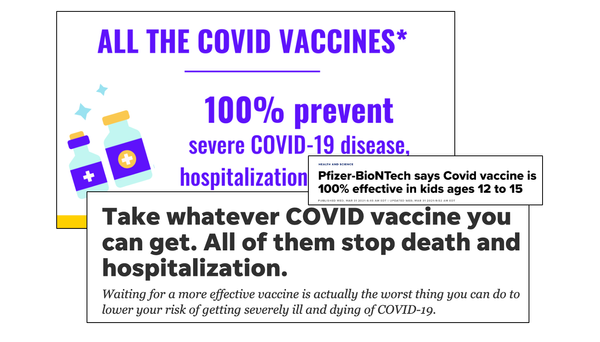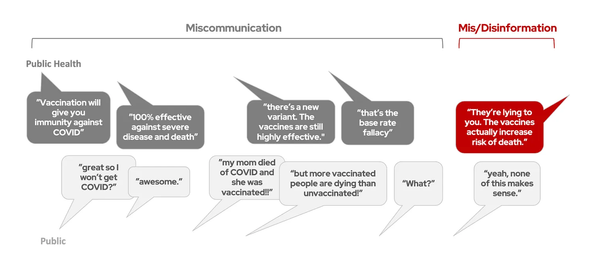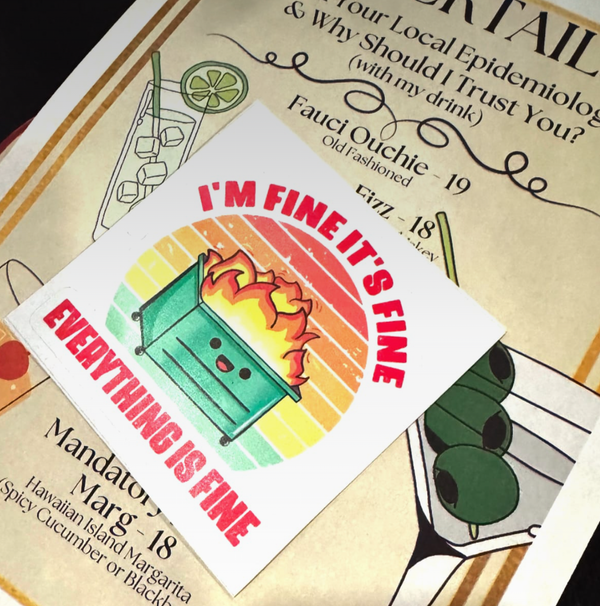Threads, please don’t censor COVID
CDC.gov is not the answer to all vaccine questions.
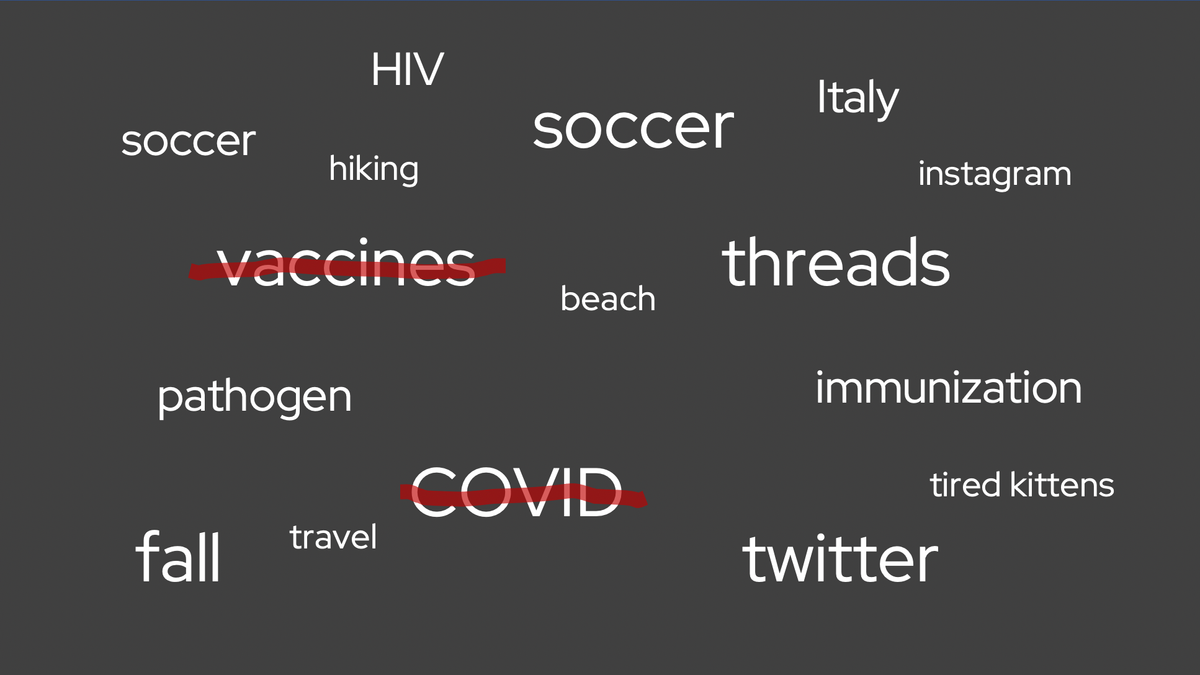
I was one of the ten million people who signed up for Threads – Instagram’s new twitter replacement — on the first night.
It seemed like the app I had been waiting for. Twitter had been my platform of choice for the last few years, but it has become progressively more unusable — no more verification, the algorithm prioritizes those who are willing to pay over those who have something interesting to say, and many of my favorite accounts have left and are simply not posting anymore. (I hardly am, too.)
It is difficult to overstate how important Twitter had become for scientific communication. Scientists and doctors were able to share new insights with each other in real time. Young scientists had a platform to share their work easily across institutions and continents. In grad school, after repeatedly trying and failing to find a way to keep up with the firehose of literature in my field, I had finally found the solution on Twitter: follow the people in your field, and you have instant summaries on the latest important papers the day they come out.
Equally important, Twitter provided scientists and doctors a direct line of communication to the public. We could explain results in real time, address the latest viral rumors, and discover the questions that needed answering. To be sure, Twitter can be exceedingly unpleasant (I have had more than one evening ruined by a pile on of hateful comments). But for science communication, the opportunity was very much worth the trolls.
Sadly, the communities that were science and medtwitter do not exist anymore, at least as they once were. This isn’t about a name change from Twitter to X; it’s about the people and the discussions they had. Many people have left the platform and have migrated to their Twitter clone of choice — Blue Sky, Mastodon, Post, Threads. The rich community that once was is now dispersed and fragmented, so the conversations are too.
When Threads came out two months ago, I thought it might be the new home for up-to-date scientific conversation. It had the backing of Instagram, which meant it had the resources to make it a very usable app (unlike Mastodon) and there were no limits to the number of people who could sign up (unlike Blue Sky).
But now, Threads seems to have declared itself a place where science can’t be easily discussed. At least, the science of COVID and vaccines.
Threads search function currently censors "COVID" and "vaccines"
Threads was admittedly launched early, and lacked basic functions when it launched like a desktop version, a ‘following only’ feed, and a search function.
To their credit, they’ve been adding them (and listening to feedback along the way.)
This week they finally launched the search function. Previously you could only search for accounts, but not posts. As of this week, you can now perform key word searches for posts on specific topics, a critical utility for finding up-to-date information and connecting with people in your field.
Like the nerd that I am, the first word I searched for was “COVID,” and got this:
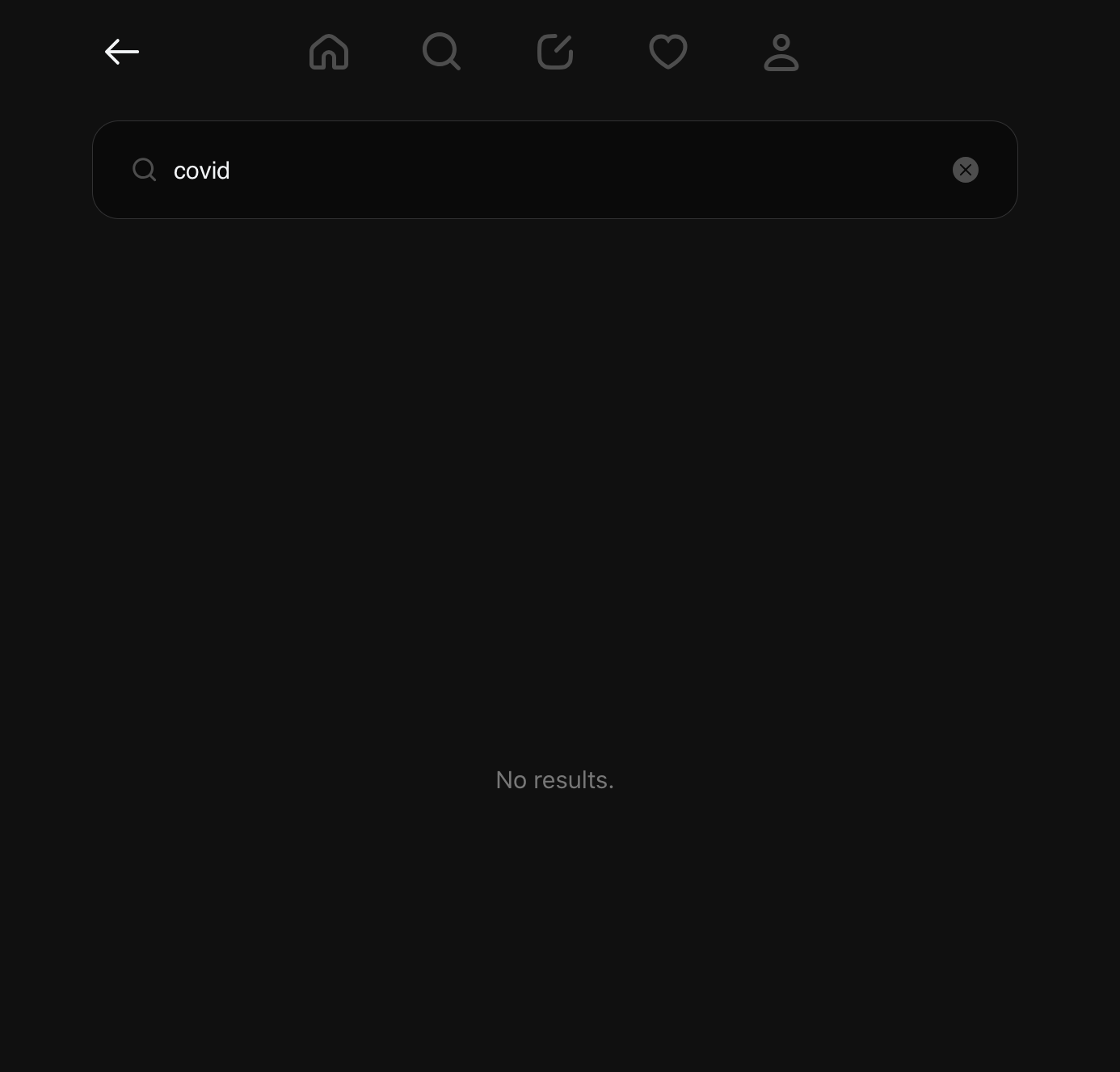
Nothing came up. I thought the search function must be broken, or maybe I misunderstood and it hadn’t been launched yet.
I came back later and tried searching for “vaccines,” and got the same result (no posts). Instead they provided a link to the CDC page on vaccines.
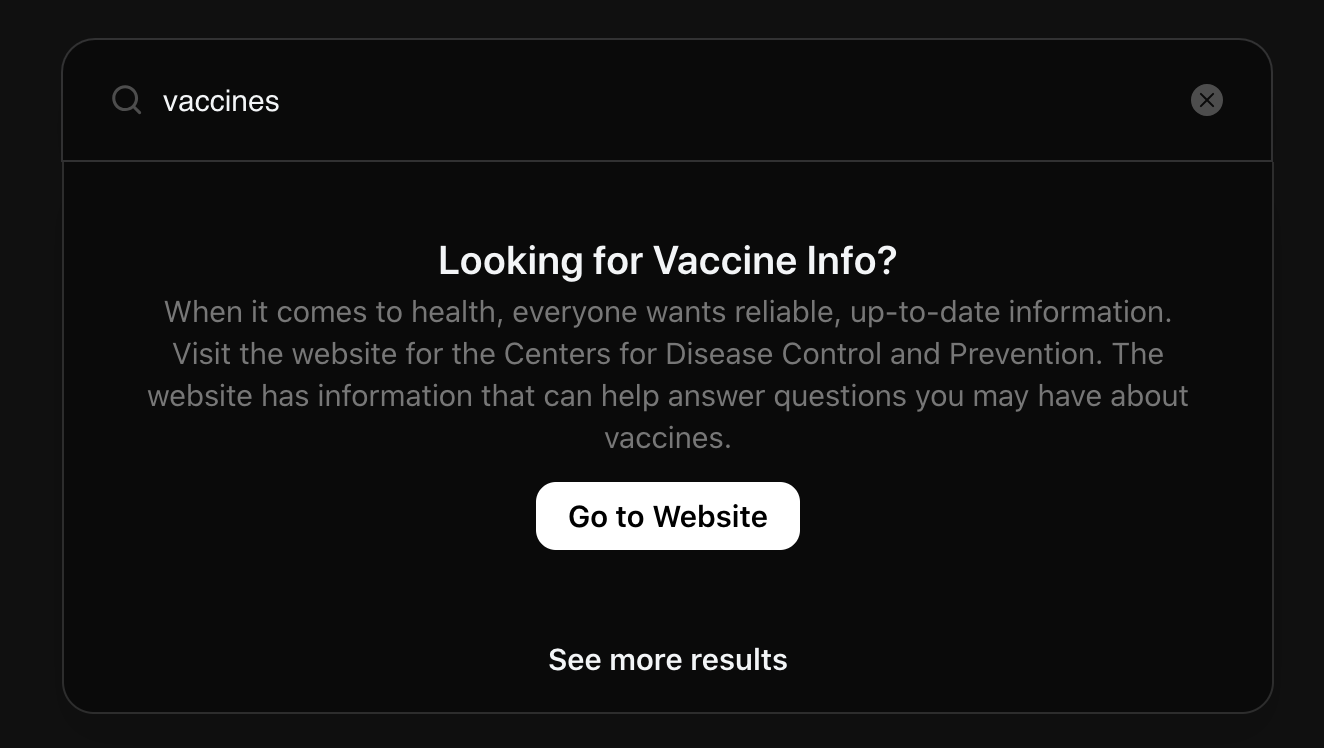
(The “See more results” link just takes you to a list of accounts with “vaccine” in their handle, but no posts about vaccines.)
Finally, I searched “twitter” and to my dismay, discovered that the search function was not broken: a multitude of posts showed up (mostly discussing how Threads is superior to Twitter/X) . Other search terms are allowed on Threads, but not “COVID” or “vaccines.”
I’m not gonna lie — this hit a nerve. Not only does this directly inhibit our ability to form scientific community and learn from each other, but it is a terrible solution to the problem of inaccurate information on social media (which I assume was their motivation for censoring these particular words.)
Even more frustrating, some scientists praised the decision as an effective solution to misinformation — just refer people to the CDC website! As someone who has spent hundreds of hours discussing vaccines and COVID on the internet, let me assure you: this will not work.
Perhaps this is temporary — a simple solution as Threads decides how it will handle the complex and difficult problem of content moderation. I hope this is the case, but even so, censoring everything on a topic is certainly not a promising start.
Censoring discussion will fuel vaccine hesitancy, not fix it
It is critical to recognize how much vaccine hesitancy has grown hand-in-hand with the concern that vaccine discussions are censored online. In many ways, these are two sides of the same coin. If a video is censored (pulled off YouTube, Facebook, etc.), for many people that is a mark not of inaccuracy but veracity. Social media companies often remove these videos with the goal that people will not be exposed to (and thus not believe) the content, but ironically they often achieve the opposite result. Many people are drawn to and believe information because it is censored. The more a particular message is censored, the more many people are convinced that something true is being hidden.
Early in the pandemic, I remember watching someone share the latest viral (and inaccurate) video on Facebook. This was not unique, but was surprised me was why they shared it. They shared it not because they believed it was true — they didn’t know whether the content was true or not. They were sharing it in protest: the video had been taken down from YouTube, so they wanted to share it on Facebook while they still could. The accuracy of the content was secondary, the fact that it had been censored was primary. YouTube’s goal was the video be shared less, but ironically their actions were motivating people to share (and believe) the video even more.
Whether it’s fair or not, censoring content has fueled distrust in the scientific community. Many people believe scientists and doctors aren’t acknowledging safety concerns about vaccines, and instead of debating and discussing, ‘we’ just take the information down (never mind the fact that the average scientist has zero control over decisions made by social media companies.) Even if we don’t personally make these decisions, if we cheer when the content is removed, we’re viewed as complicit, and trust in science dwindles.
Content moderation and deciding when and how to debate vaccine science are tricky topics, and I’m not here to give a blanket recommendation on how to handle it. But it should be recognized that, whether or not it seems fair or right, every time something about COVID or vaccines is censored, trust in science takes another blow. We may win the short game of decreasing inaccurate information on the internet, but we’re losing the long game of building trust in the scientific community.
The CDC website is not the answer to all vaccine questions
Instead of letting Threads users see posts about vaccines and COVID, they only have one option: go to the CDC website.
While the CDC website does have a lot of useful information, directing all questions about COVID and vaccines to their website is like telling overworked and burnt out employees to “just practice mindfulness.” It is an empty solution that makes people feel like they have offered something, but for many people, that something probably isn’t going to help much.
First, a large number of people in the United States simply do not trust the CDC anymore. The reasons for this distrust vary, but the outcome is the same: if they are the only source of information provided, many people will simply not listen (and be very annoyed), and their questions will remain unanswered. A link to the CDC website does not solve misinformation.
Furthermore, forcing people to go to the CDC website by blocking all other content may fuel that distrust even more. By putting their website in this position, the CDC becomes the face of censorship (“you don’t get to read what other people think, only the CDC!“) This does not help their trust problem.
For the many who do trust the CDC, they may still encounter trouble, as the CDC website is not not particularly easy to navigate or understand. Much of the information provided is for academics, not the general public. The frequently asked questions sections provide limited answers. And the layout is convoluted: I have given up looking for information multiple times because I got frustrated with its archaic and complex web structure that is the CDC website.
If we want a one-stop-shop for vaccine information, it would need to be:
1. Easily searchable (a giant search bar that yields relevant results would be a good start)
2. Targeted towards a general audience (currently the CDC website serves as a resource for clinicians, scientists, and the general public, and it’s easy for people to get lost in the academic noise)
3. Up-to-date addressing not just basic vaccine questions, but the latest viral rumors (for the most part, the CDC website has not provided much information addressing rumors and instead focuses on topics like effectiveness, vaccine schedules, and side effects).
Perhaps it’s not fair to ask the CDC website to be all of these things. Maybe a separate website is needed that is targeted towards addressing vaccine questions and rumors for a general audience (Those Nerdy Girls comes to mind as a promising example.)
But this is the point — the CDC website is not a sufficient resource for people’s vaccine questions. Half of them don’t trust it, and the other half may have difficulty finding the answer they’re looking for.
Threads, please do better than this.

